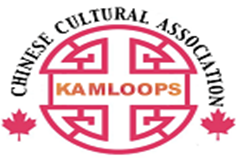Ching Ming Festival
Ch’ing Ming – Spring Festival of Departed Souls, Grave-Sweeping Day, observed on
April – usually the third moon of the new year.
The date is indicated on the Chinese calendar with the two characters: ching, meaning pure or clean, and ming, meaning brightness. Combined together, Ching Ming means clean and just. Ching Ming rituals not only include weeding of the area, cleaning of the headstone, and replacing the wilted flowers with fresh ones, but also the lighting of incense and burning of imitation paper money. The burning of the imitation money is for the deceased to use in the afterlife. In addition, food is laid out in front of the headstone as an offering to the spirits of the deceased. The food may include a steamed whole chicken (including the head, which is later twisted off), hard boiled eggs cut in half lengthwise with shell attached, sliced barbecued pork (cha shiu), cut roast pork with crunchy skin attached, and dim sum pastries. In addition, three sets of chopsticks and three Chinese wine cups are arranged above the food and closest to the headstone.
The head of the household usually begins by bowing three times with the wine cup in hand, then pouring the wine on the ground just in front of the headstone. This procedure is usually repeated three times. Each member of the family comes in front of the headstone and bows three times with the right fist held cupped in the left hand. Some families will then eat the food together there at the grave site, similar to having a picnic with their deceased relatives. h is said to bring good luck to eat the food that was offered to the deceased.
Today, the responsibility to hang san or ‘walk the mountain’ as visiting the cemetary is commonly known, still falls to the eldest son. Today families may be more likely to prefer simplified offerings of only the incense, paper money and flowers.
Altar – is used to place offerings to the dead with worshippers on one side of the altar.
Incense burning – was to purify the air.
Ball lau (chinese concrete burner) to burn paper money – to give to those in the afterlife to use Feast of chicken, bbq pork and fruit and wine.
2-handed bow 3 times is a sign of respect to the dead.
Ch’ing Ming is a happy time, not a sad time; it is a form of respect that the Chinese never forget their dead.










Kamloops Chinese Heritage Cemetery
























